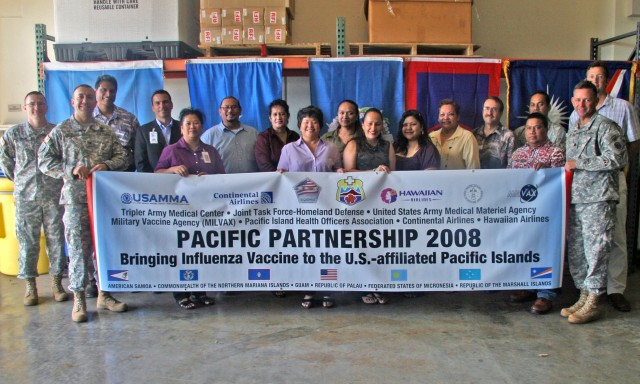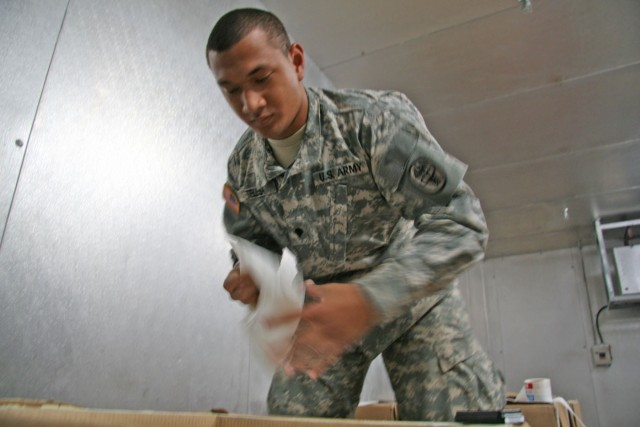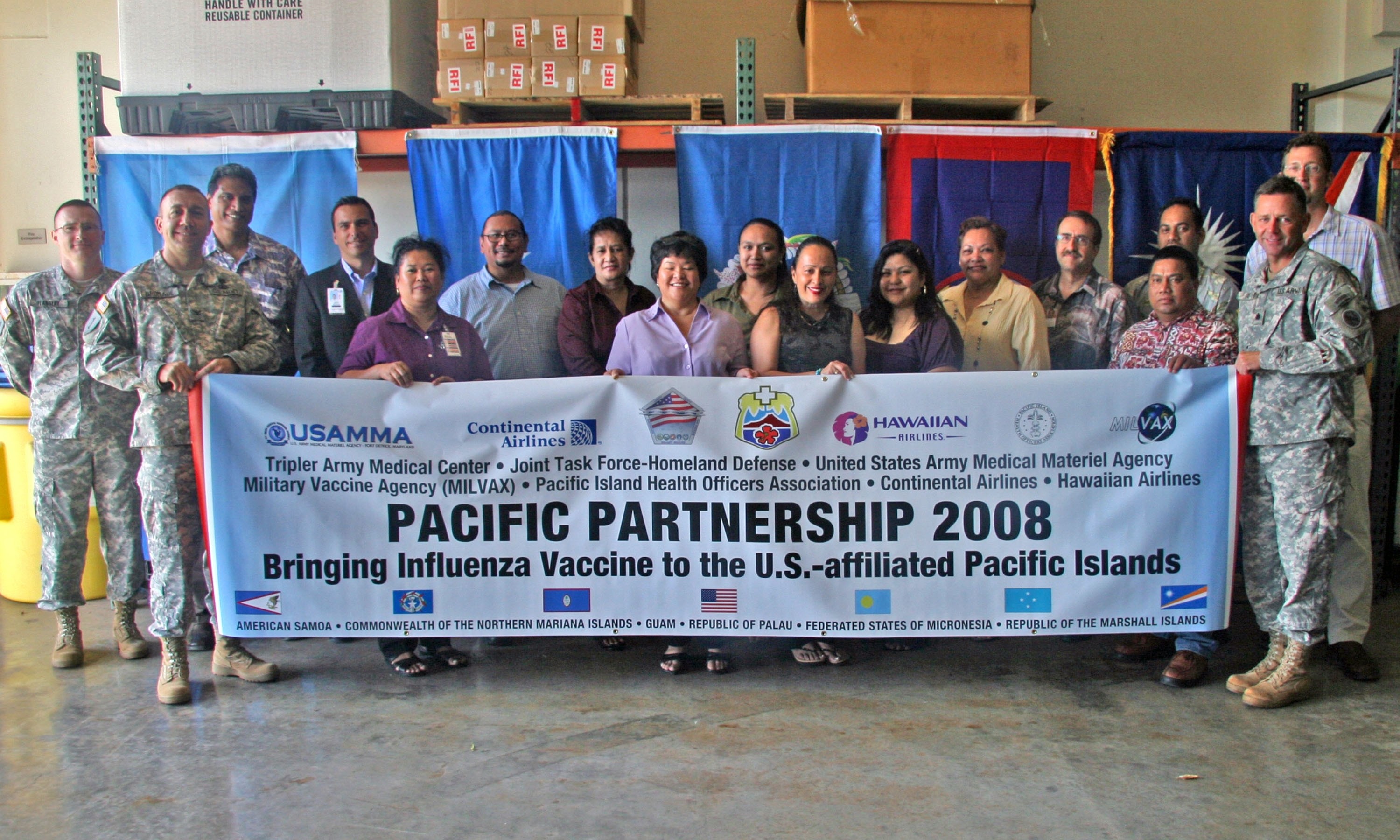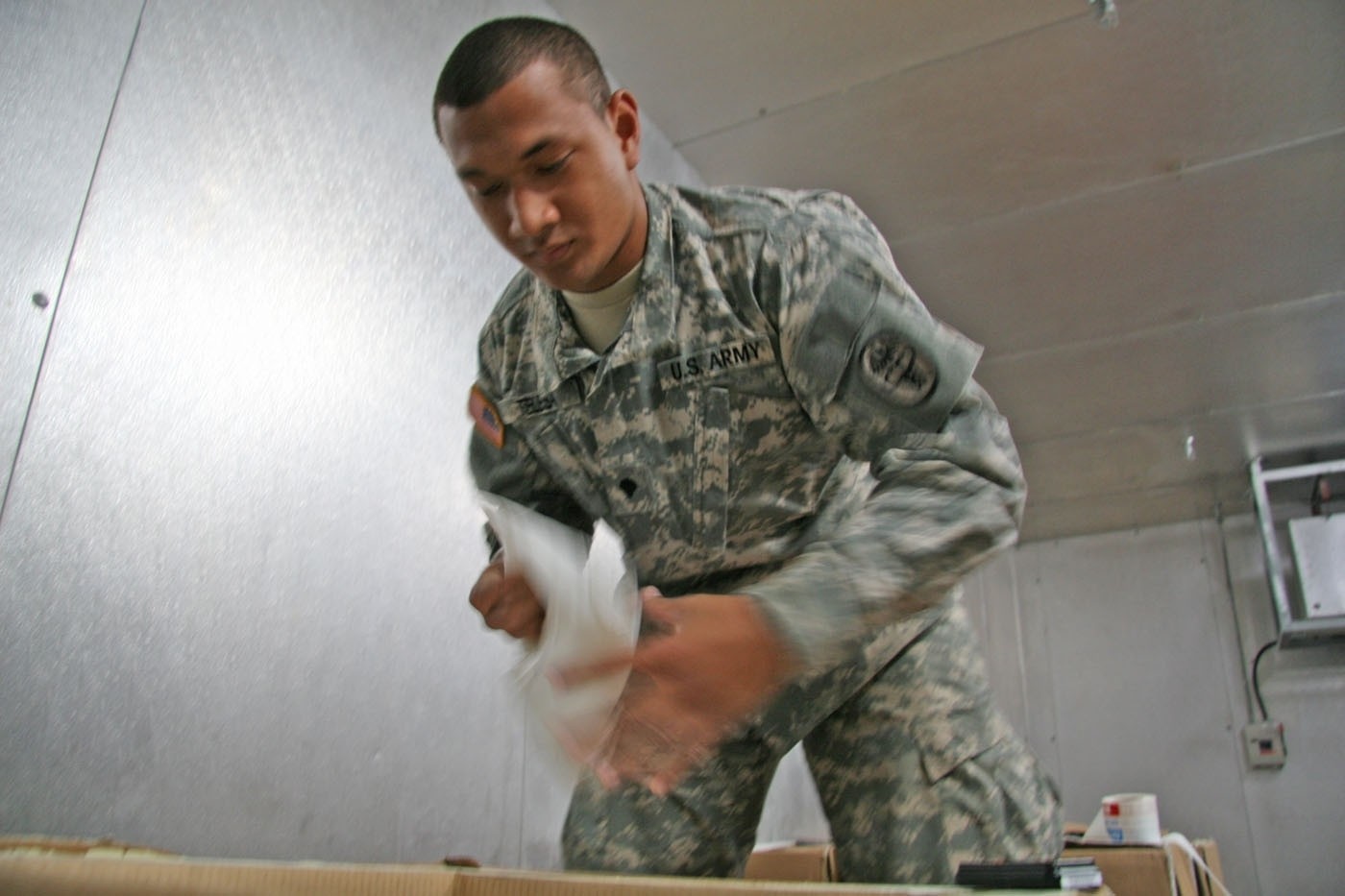HONOLULU - An on-going partnership between the U.S. Army, local airlines and other federal and non-governmental agencies yielded the Defense Department's entire stock of excess seasonal influenza vaccinations to benefit U.S.-affiliated islands in the Pacific March 24.
This collaborative effort is expected to benefit tens of thousands of Pacific Islanders over millions of square miles, according to Col. Mike Brumage, Tripler Army Medical Center's chief of preventive medicine.
"Today's shipment represents a year's worth of collaboration between a number of agencies to deliver excess Department of Defense influenza vaccines to different jurisdictions in the Pacific," Brumage said. "This enables Pacific Islanders to be immunized against influenza, which is a year-round disease in the tropics.
Receiving the flu shot protects not only the recipient, but also all those people who work closely or live with the vaccine recipient, Brumage said, extending the benefit of the vaccines beyond the actual number of doses shipped.
In total, the team has shipped nearly 30,000 doses of the vaccine to American Samoa, Northern Marianas Islands, Palau, Micronesia, Guam and the Marshall Islands, with a value of almost $260,000. The vaccines are provided at no cost to the islands.
Each year, the Defense Department uses influenza vaccine in order to protect beneficiaries against the virus. The vaccination is mandatory for active duty and recommended for all beneficiaries who are eligible to receive it, such as family members and certain civilians.
"Invariably, the department ends up with excess doses that are destroyed at the end of the influenza season or when the vaccine expires," Brumage said. "The resources of our collective inter-agency partnership enable us to benefit large populations of our neighbors in the Pacific.
In a trial run of this partnership program during the 2006-2007 flu season, 7,800 doses of excess influenza vaccine on Oahu were shipped to the Northern Mariana Islands.
Based on the success of last year's program, the collaboration of governmental and non-governmental agencies along with local airlines expanded the scope of their efforts to include the entire Defense Department's excess vaccinations, which has never previously been done.
"Often times these islands only have a small amount of doses to give out to the local population each year, so these extra vaccinations from the U.S. military will afford more people with protection against this particular virus," said Ron Ballajadia, Pacific Islands Health Officers Association.
Tripler medical and supply specialists collected the excess vaccines throughout the entire military, with help from Ft. Dietrick, Md.-based U.S. Army Medical Materiel Agency.
Military Vaccine Agency Hawaii coordinated receipt of the shipment at Tripler's warehouses and maintained quality control. Each nation's embassy, in conjunction with their Ministry of Health, requested and arranged receipt of the shipment to their respective islands.
The local non-governmental agency Pacific Island Health Officers Association worked with health officials from the island nations to identify their needs for the vaccine.
Continental Airlines Micronesia and Hawaiian Airlines are shipping the vaccine at no cost to each island.
"Our network throughout the Pacific allows us to do this," said Jeff Moken, general manager of Continental Airlines. "We feel this is a very important initiative we have to take. Many of the recipients of the vaccines are not only customers, but also are our co-workers and family members."
In the U.S., seasonal influenza kills approximately 36,000 Americans on average each year. The victims are primarily infants and the elderly.




Social Sharing